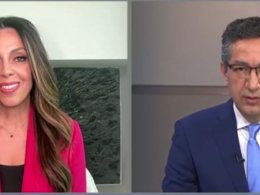Summary
1. Helps Wealthy Americans
According to reports, more than 80 percent of Americans do not have to deal with student loans because many have paid off their debt or never went to a four-year university. There are around 45 million student loan borrowers and 250 million adult Americans, with 60 percent of student loan debt held by thousands earning more than $75,000 of income every year. Should student loan forgiveness occur, it will disproportionately benefit wealthy Americans. Education experts note that attending college and earning a degree is a choice people make on their own and can lead to a higher income depending on the major chosen. Some Republicans in the House and Senate have argued for Congress to increase Pell Grants to lower the cost of college for financially vulnerable students that are in the bottom 40 percent in terms of income level.
2. Increase in Inflation
Former economic officials under Democratic administrations like Lawrence H. Summers and Jason Furman argue that the President's action significantly hampers any chance of lowering current inflation. On Twitter, Summers stated that the debt relief "consumes resources that could help those who did not, for whatever reason, have the chance to attend college. It will also tend to be inflationary by raising college tuition." Furman stated that debt-cancellation would nullify the deflationary powers of the President's Inflation Reduction Act and significantly increase inflation as it stands. Economic aid from Moody's Analytics also took to social media to explain that this policy will restrain economic growth in America and will not decrease inflation. In Congress, Republicans echo similar concerns, arguing that such actions will hurt lower and middle-income Americans who are already facing soaring prices.
3. Legality
The cancellation of $10,000 in student loans for millions of wealthy college students have raised many questions about the legality and future ramifications. In Congress, Senators pointed out that without congressional authorization, the President cannot enact student loan cancellation. Some pointed out Speaker of the House Nancy Pelosi (D-CA) and her comments regarding the President's inability to cancel student loans, calling on Congress to take up the issue. Progressives like Senator Elizabeth Warren (D-MA) argue that the Higher Education Act of 1965 grants the Secretary of Education powers to cancel student loan borrowers for any amount. Legal experts point out, however, that the President's actions open the administration into a legal landmine and will lead to court battles shortly.
4. Increases Division in the Country
When it comes to the issue of student loan forgiveness, many progressive college students argue in favor of the President's decision while many other Americans do not. Americans without college degrees or those who have paid off their loans feel that the President's actions cater to his progressive base while alienating half of the country. These individuals argue that they should not pay the tab for those choosing to attend four-year universities. The move from President Biden comes as he and many other Democratic members of Congress continue to pass spending legislation to appease progressive voters. With the upcoming 2022 Midterms, Republicans in the House and Senate are running against the President and his policies, calling such unilateral measures unconstitutional and vowing to rein in the Executive Branch.
5. Will Not Lower the Cost of College
Education and economic experts familiar with the issue of student loan forgiveness argue that such actions will lead to an increased cost of college overall. According to these experts, future student loan borrowers will borrow student loans, thinking that they will not have to pay them back eventually. Colleges will raise their tuition, making more students borrow and leading to a never-ending cycle of price increases and borrowing. Additionally, many argue that the President's move violates the common American idea of personal responsibility, arguing that college students must learn to act responsibly for their decisions. As more young Americans are choosing not to go to college and attend community college or enter the workforce, the President's unilateral actions are viewed by many as another way for highly elite universities to raise their tuition and obtain funds to support progressive policies










